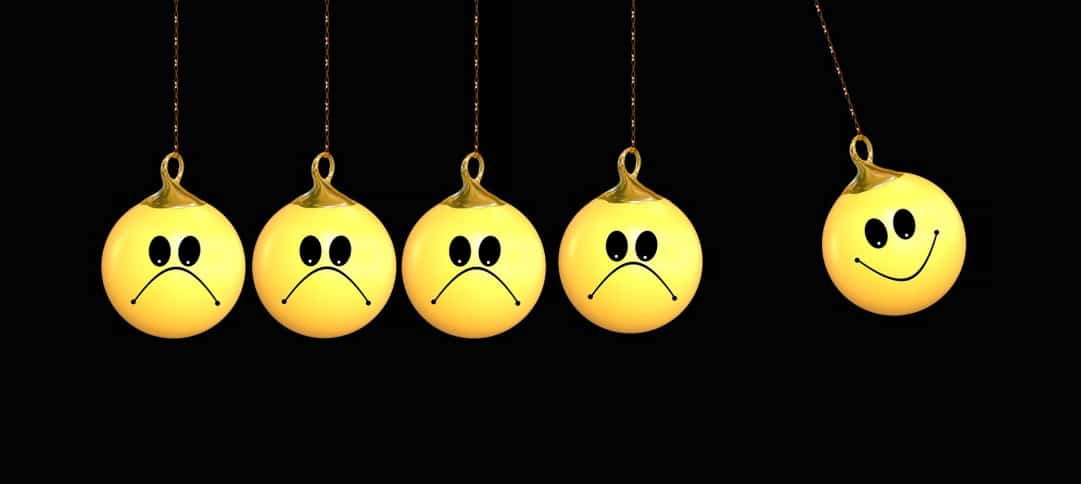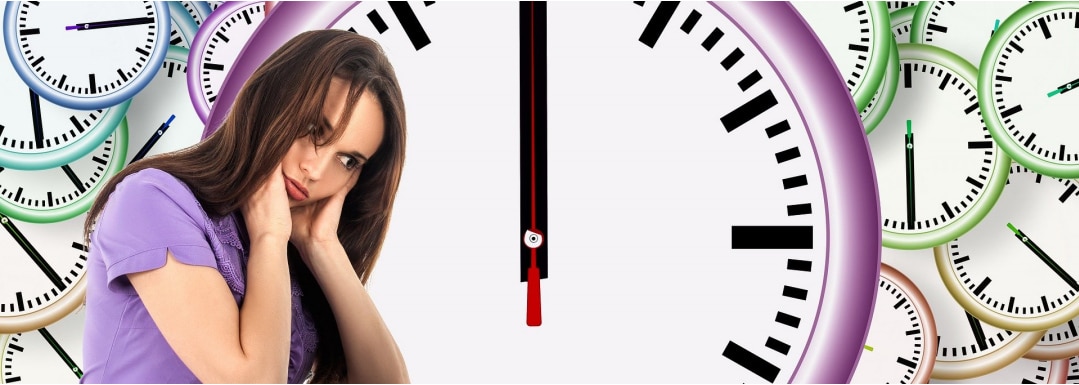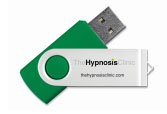How to use hypnosis for depression
Depression is a common and sometimes serious medical condition that negatively affects how you feel, the way you think and how you act. Fortunately, it is also treatable. Depression causes feelings of sadness and/or a loss of interest in activities you once enjoyed. It can lead to a variety of emotional and physical problems and can decrease your ability to function at work and at home.
What will I learn in this blog?
• That depression is a lot more common than you might think
• Some people are more likely to be depressed than others
• Looking at the cause of your feelings is often useful
• Using hypnosis for depression could help you to feel happy again
 What are the symptoms of depression?
What are the symptoms of depression?
According to the NHS, Depression affects people in different ways and can cause a wide variety of symptoms.
They range from lasting feelings of unhappiness and hopelessness, to losing interest in the things you used to enjoy and feeling very tearful. Many people with depression also have symptoms of anxiety.
There can be physical symptoms too, such as feeling constantly tired, sleeping badly, having no appetite or sex drive, and various aches and pains.
The symptoms of depression range from mild to severe. At its mildest, you may simply feel persistently low in spirit, while severe depression can make you feel suicidal, that life is no longer worth living.
Most people experience feelings of stress, anxiety or low mood during difficult times. A low mood may improve after a short period of time, rather than being a sign of depression.
What causes depression?
There’s no single cause of depression. It can occur for a variety of reasons and it has many different triggers.
For some people, an upsetting or stressful life event, such as bereavement, divorce, illness, redundancy and job or money worries, can be the cause. Different causes can often combine to trigger depression. For example, you may feel low after being ill and then experience a traumatic event, such as a bereavement, which brings on depression.
People often talk about a “downward spiral” of events that leads to depression. For example, if your relationship with your partner breaks down, you’re likely to feel low, you may stop seeing friends and family and you may start drinking more. All of this can make you feel worse and trigger depression.
Some studies have also suggested that you’re more likely to get depression as you get older, and that it’s more common in people who live in difficult social and economic circumstances.
These are just some of the things that may lead you to feeling depressed:

Stressful events. Most people take time to come to terms with stressful events, such as bereavement or a relationship breakdown. When these stressful events occur, your risk of becoming depressed is increased if you stop seeing your friends and family and try to deal with your problems on your own.
Personality. You may be more vulnerable to depression if you have certain personality traits, such as low self-esteem or being overly self-critical. This may be because of the genes you’ve inherited from your parents, your early life experiences, or both.
Family history. If someone in your family has had depression in the past, such as a parent or sister or brother, it’s more likely that you’ll also develop it.
Giving birth. Some women are particularly vulnerable to depression after pregnancy. The hormonal and physical changes, as well as the added responsibility of a new life, can lead to postnatal depression.
Loneliness. Feelings of loneliness, caused by things such as becoming cut off from your family and friends can increase your risk of depression.
Alcohol and drugs. When life is getting them down, some people try to cope by drinking too much alcohol or taking drugs. This can result in a spiral of depression. Cannabis can help you relax, but there’s evidence that it can also bring on depression, particularly in teenagers.
“Drowning your sorrows” with a drink is also not recommended. Alcohol affects the chemistry of the brain, which increases the risk of depression.
Illness. You may have a higher risk of depression if you have a longstanding or life-threatening illness, such as coronary heart disease or cancer.vHead injuries are also an often under-recognised cause of depression. A severe head injury can trigger mood swings and emotional problems.
Some people may have an under-active thyroid (hypothyroidism) resulting from problems with their immune system. In rarer cases, a minor head injury can damage the pituitary gland, which is a peasized gland at the base of your brain that produces thyroid-stimulating hormones. This can cause a number of symptoms, such as extreme tiredness and a lack of interest in sex (loss of libido), which can in turn lead to depression.
How do we take back control?
According to The Jefferson Centre, there are a number of things that help depression.
1. Eat a Healthy Diet
What you eat can have a significant impact on the way your body and mind feel. While you might want to reach for snacks packed with sugar or fat when you’re feeling low, it’s best to stick to a healthy balance of fruits, vegetables, and proteins that will improve your energy levels and keep you nourished. Avoid skipping meals and be sure to eat meals at regular times to help you maintain a routine throughout the day. Additionally, you should limit the amount of caffeine and alcohol you drink, which can negatively impact your mood.
2. Get More Exercise
Studies have shown that just doing 15 minutes of moderate exercise a day can significantly decrease symptoms of anxiety, stress, and depression. This is because exercise helps to break down stress hormones like cortisol while releasing feel-good endorphins at the same time. However, not every activity needs to get your heart pumping and sweat running to be an effective tool against depression. Some other ways to exercise include:
Walking for thirty minutes
Gardening
Cleaning the house
Washing your car
Going for a bike ride
Playing outside with your kids
Taking your dog for a walk
Experts recommend getting at least thirty minutes of activity each day to help regulate your mood as well as improve your overall health and protect against other risks like obesity, heart disease, and diabetes.

3. Soak Up Some Sun
Another self-care aspect that is easy to overlook when all you want to do is sit on the couch is getting outside into the sunshine! Sunlight and darkness trigger different hormones in your brain and too much time spent inside can have a huge impact on your mood. Along with boosting your serotonin levels, spending some time outside can help increase Vitamin D production, lower your blood pressure, build stronger bones, and allow you to get more quality sleep.
4. Get Quality Sleep
Sleep is something that can quickly influence every other part of your life, especially if you’re not sleeping well. Depression and sleep go hand in hand because a lack of sleep may cause or contribute to depressive symptoms and depression can cause sleep problems, ultimately impairing your ability to function on a daily basis.
To support a healthy sleep cycle, make sure that you keep a regular bedtime and waking up schedule, avoid taking naps, and get into bright light soon after waking up to signal to your brain that it’s time to start the day. Limiting your caffeine and alcohol intake and getting some exercise during the day will also help you get to sleep faster each night.
 5. Socialise with Friends and Family
5. Socialise with Friends and Family
Even if you are experiencing mild depression, you might find yourself drawing away from others, avoiding social situations, or not wanting to burden people with your feelings. One of the hardest but most helpful things you can do to see yourself through depression is to find that strong support circle and spend time with the people you love.
Now that COVID restrictions are being lifted, it’s a good time to catch up with people that you haven’t seen in a while.
Schedule times to visit with family and friends or plan to grab lunch with a co-worker so you have a specific time and place where you can lean on others when you’re feeling blue. You might also find that some of these people have experienced depression themselves and they might be able to relate with you on the subject and share ideas of what has helped them in the past or just lend an open ear.
 6. Plan Fun Activities
6. Plan Fun Activities
Before experiencing depression, you probably had plenty of interests, hobbies, and favourite activities that occupied your free time. Although you might have lost interest in those things recently, it doesn’t mean your passion has completely disappeared. Even when you don’t feel like it or you feel too exhausted to engage with anything, try to spend a little time doing the things that once brought you joy. This could be cooking a delicious meal, making artwork, listening to music, journaling, or even working on your car. Eventually, you will find yourself enjoying these activities again and feeling more like yourself each day.
7. Be Kind to Yourself
One last important way that you can help yourself through any difficult situation is to be kind to yourself. Remember that it’s not your fault if you are feeling depressed. Be your own ally and show yourself plenty of compassion as you work through challenging situations and days where it seems like nothing will ever make you feel better. Depression is a highly treatable disorder and you can come out on the other side.
How does hypnotherapy help with depression?
Any level of depression should be taken seriously and the faster you address the symptoms, the less likely you are to develop a more severe type of depression. Seeking professional help is a sign of bravery and self-respect because it shows that you are dedicated to caring for your mind and body. A good hypnotherapist can offer more clinical advice and guide you through treatment with approaches that are more tailored to your specific situation and needs. However, if you are experiencing suicidal thoughts, tell someone you trust and seek assistance immediately.
 Hypnotherapy for depression works from two different directions, firstly to look and see what has actually caused the depressed behaviour in the past, and then to give you the tools you need to be able to fight that anxiety by increasing your feelings of calmness, physical relaxation and control.
Hypnotherapy for depression works from two different directions, firstly to look and see what has actually caused the depressed behaviour in the past, and then to give you the tools you need to be able to fight that anxiety by increasing your feelings of calmness, physical relaxation and control.
You see, what often happens with depression is that we get a circle of behaviour that gets out of control. Firstly, concentrating on the thing that makes you unhappy makes you … well, unhappy! That continued concentration can turn a small puddle of worry into a massive sea of depression; your mind becomes a stressful place, where the depressive thoughts seem to dominate all the other, more tolerable thoughts.
We use hypnotic techniques to increase some of the things you need to be able to rationalise that is happening to you when you start to get anxious, and do something about reversing the trend before it becomes a full-blown life challenging event.
Calmness is the antidote to anxiety and depression. When your mind is calm, you see things in their true perspective, and with their correct levels of meaning. Because your outlook is more rational, thinking and optimistic, it prevents the negative thoughts from getting a hold and taking you someplace you don’t want to go.
Now, there is a side-effect of being calm, and it’s that your body relaxes. No longer at DEFCON 1 and under attack, your muscles relax, your heart rate and blood pressure are adequate and you feel at ease with yourself.
Of course, there is natural effect from feeling and being calm and relaxed, and that’s confidence. The too main ingredients of confidence are mental calmness and physical relaxation, when you think about times in your life that you’ve been most confident, they have always been when you felt calm and relaxed.
Confidence naturally leads to feeling and being more competent. So you can see things more clearly with the correct level of meaning with true importance. And because your mind is calm, your body is relaxed, you feel confident, you see things in their perspective. The quality of your natural sleep also becomes progressively better and better, so that you wake up in the morning feeling and being calm, relaxed, in charge, in control, happy and at ease.
 In the sessions, you are taught to relax to a very deep level and you can also have a specially-recorded self-hypnosis
In the sessions, you are taught to relax to a very deep level and you can also have a specially-recorded self-hypnosis
session. To use at home, then you can gradually replace the old feelings with the new ones, until they just feel right.
It’s important to find a therapist that respects your confidentiality, so that you feel comfortable telling them all about your issues.
Remember, your exterior world is a reflection of who you are on the inside. To change your outer world, you have to change your inner world. That’s where hypnosis really comes in.
To find out more about hypnosis and how it works, have a look here at our ‘what is hypnosis’ page.
CASE STUDY 1 – Anxiety
 John Juno had been suffering from depression and anxiety for many years, it was even affecting his sleep? Could using hypnosis for depression and anxiety be the answer to his problems?
John Juno had been suffering from depression and anxiety for many years, it was even affecting his sleep? Could using hypnosis for depression and anxiety be the answer to his problems?
“Great experience. Quite nothing that I’ve ever experienced. Like anything that is outside of traditional medicine, I approached this with a bit of skepticism but when I fully committed to getting this done and put my faith in Jonathan I was able to slowly overcome sleep anxiety.
I will definitely recommend Hypnotherapy as an alternative to managing anxiety with ‘pills’ that may do more harm than good in the long term.”
What did I learn here?
That depression can be challenging; it often has roots into our genetic material, however, even serious depression can be cured.
If you’d like to find out more about how hypnosis can help you to be free of depression, have a look at our website. We offer a free initial consultation, either by a Telehealth video link or at our clinic right in the heart of London’s Regent Street.

